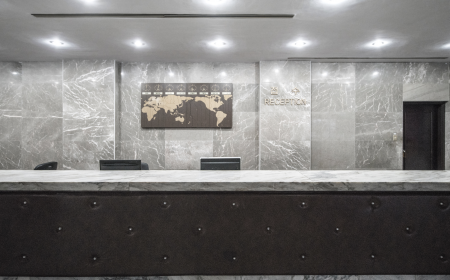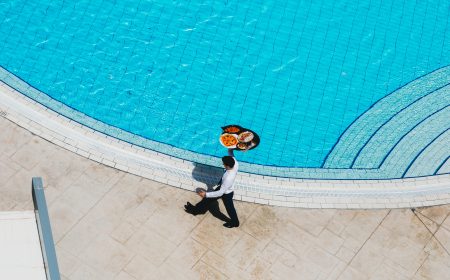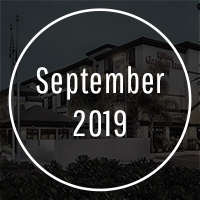Social Media Comes of Age in Hospitality
This fall the online publication Hotel Executive asked me to write an article for them referencing my thoughts on social media and how its evolution will impact the hospitality industry. Personally, I believe those hospitality and lodging companies that aren’t taking advantage of using social media as a tool and vital resource will quickly lose market share. Read the full article to discover why:
“At the most recent Lodging Conference in Phoenix this past September, industry insiders were debating and prognosticating that social media “would never be a distribution channel” with one panelist explicitly stating that people have been talking about social media as a distribution channel for five years and it is not on the radar screen. I aggressively defended my position that this view was short-sighted and to that panelist I say that we have not only identified this phenomenon as “on the radar screen” but that it is on approach and ready for landing. Those who sit on the sidelines will lose market share and those of us who operate hotels today know that market share loss means “game over.”
Since the concept came about, social media has had a stigma of being used solely for individual use, constant communication and as a source of personal entertainment. Tagging friends on Facebook, tweeting your favorite celebrities and sharing photographs are all standard practices when it comes to social media activity, yet in recent years a new wave of creativity has developed among these users. Now more than ever, businesses and brands have a strong presence across these sites. Beginning to realize the benefits that lay behind a strong social media presence and its use as a form of communication between hotels and their guests, many properties have become familiar with the concept. Taking full advantage of all the different social media platforms, their functions and how they can best service hotel guests is a rapidly developing necessity among hotels worldwide.
When it comes to traveling, those exploring an unfamiliar area frequently use their smart phones and mobile social media applications to discover happenings, use maps, share updates with friends and much more. 85 percent of travelers use their smartphones while doing so and 46 percent of them check into specific locations while on vacation. Research has shown that the top five uses of smartphones while traveling consist of taking pictures, using maps, researching restaurants, searching for activities and checking in for a flight prior to travel.(1)
Recognizing the potential behind mobile social media applications, Marriott Australia initiated a new social media campaign geared toward “showing Millennials secret spots and activities” (2) while traveling. The movement circulated around the concept of initiating a “social concierge” service for their guests that allowed them to stay connected and informed with any happenings around the city. Using the hashtag #ThisCityMyWay and the help of six teenage girls, the hotel group launched their social concierge campaign in September of 2013 in Sydney, Melbourne, Brisbane and the Gold Coast.
It is the responsibility of the six team members to position these cities as desirable destinations by frequently posting on Instagram and Twitter and sharing stories relevant to the four cities. When you visit the campaign website you discover that each city has its own page crowded with a plethora of these social media posts highlighting the best local treasures from tourism boards, locals and businesses alike. (3)
Not only is the website a useful source of information, but it also runs different “Instagram to Win” competitions offering incentives such as overnight stays at one of the four participating Marriott locations. The current competition requires participants to use their Instagram application to follow @ThisCityMyWay, uploading a picture of the local cuisine they are enjoying with friends and hashtagging #ThisCityMyWay. Our research has concluded that there are over 297 Instagram users who took part in the competition. As a result, all of the followers on the application were able to view these posts, broadening the recognition of not only the giveaway but the overall campaign as well.
Marriott’s use of these different social media platforms is a perfect example of how communication is shifting from a personal level to a virtual one in present day hotels. Taking advantage of the knowledge and resources of the savvy Millennials chosen to implement the campaign, Marriott Australia has developed a unique, successful and engaging way to increase its social reach and encourage guests to use social media as a form of communication during travel. (2)
Millennials have begun to have a tremendous impact on the travel and tourism industry. This sector of the market is now reaching the age where they are working full time and making a steady income, forcing them to discover a suitable work/life balance. Within the next 5 to 10 years, 70 percent to 80 percent of Marriott’s business will come from GenXers and Millennials.(4) The travel patterns of this group are unlike any other; they are not looking for a full service experience, they want to throw their bags down upon arrival to get out and explore the surrounding area. With the realization that this age group is responsible for the majority of hotel business, it is the hotel’s responsibility to cater to their likes and needs. There is a massive opportunity for these properties to capitalize on travelers that are avid social media users. Occupying 25 percent of the U.S. population alone, grasping this market is paramount to successful business in future years.(5)
Positioned around the same concept of communicating through social media, The Lenox Hotel in downtown Boston has decided that the use of Twitter during a time of crisis is beneficial to hotel guests and local members of the community alike. This concept was provoked by the Boston Marathon bombing in April 2013 after the property learned that Twitter was “the go-to platform for gathering timely and accurate information from city, state and federal officials regarding the rapidly unfolding events of that week.”(6) The Lenox Hotel saw this as an opportunity to incorporate social media into their contingency planning as a way to communicate necessary information to guests and employees in a time of chaos and crisis.
Society has definitely evolved over the course of the past decade to rely on social media as one of its main forms of communication whether it is business oriented or personal. Hotels are not the only ones at an advantage through the use of social media but all businesses globally have the opportunity to increase business and remain in constant contact with guests, customers and fans.
For instance, we have seen the exponential growth of TripAdvisor over recent years and have watched it evolve into one of the main sources of hotel and resort information worldwide. With over 9 million people visiting its website each month,(7) one can understand how detrimental a bad review can be for future business. Maintaining a strong presence across all of the different platforms allows these hotels to respond to customer reviews, whether they are good or bad. Reaching out to a customer who had a bad experience by simply offering an apology or possibly incentive such as a discount or free night stay will help to regain credibility as a reputable company; without social media, communicating with a disgruntled guest would not be nearly as simple and successful.
Staying in communication with your guests in real time is one of the most powerful aspects of using social media, especially through the use of Twitter. With over 93 million visitors each month(8) and over 500 million tweets per day(9), building an effective communication strategy using Twitter can influence customer service within a hotel in an exponential way.
Referring back to the debate at The Lodging Conference, Loews Hotels and Resorts has seized the opportunity to make its guests experience even more enjoyable through the November 19th launch of its booking tool via Twitter.(10) Launching “Social Reservations” allowing guests to book hotel stays using their Twitter account is a concept that has not yet been explored by any other brand. The new bookings process “requires no calls or online booking forms. Consumers simply type #BookLoews in a tweet to @LoewsHotels to express interest and will be prompted by one of the brand’s Travel Planners to start a Twitter conversation.”(10) Once conversation is initiated and the reservation is ready to be made, guests will receive a link to a private chat where they can enter both personal and payment information. As this form of social reservations evolves, careful observation of this paradigm shift could mean the difference of multiple occupancy points for all industry players as well as settle the argument about ROI of social media efforts.(11)
2014 will be an extremely exciting time for industry leaders considering the constant technological advancements that are being made to improve the guest experience. New apps, new strategies, and the dominance of mobile in all areas will contribute to a seismic shift in customer engagement through the use of social media channels. Marriott, Loews and The Lenox hotels demonstrate that social media can be effectively deployed to increase guest satisfaction. A tidal wave is sweeping through the industry that will revolutionize the use of social media in the coming year. Are you on board?
References:
(1) http://www.stikkymedia.com/blog/2012-social-media-and-tourism-industry-statistics
(2) http://skift.com/2013/09/30/marriott-australia-turns-to-local-teens-to-run-social-concierge-campaign/
(3) http://thiscitymyway.com.au/
(4) http://www.hotelnewsnow.com/Article/12643/Bill-Marriott-pursues-millennials
(5) http://barkleyus.com/millennials
(6) http://www.lodgingmagazine.com/boston-hotels-agree-to-use-twitter-for-crisis-communications/
(7) https://www.quantcast.com/top-sites/US/2
(8) https://www.quantcast.com/top-sites/US/1
(9) https://blog.twitter.com/2013/new-tweets-per-second-record-and-how
(10) http://www.lodgingmagazine.com/loews-launches-social-reservations/
(11) http://www.hotelnewsnow.com/Article/12707/Distribution-strategies-take-step-backward”







